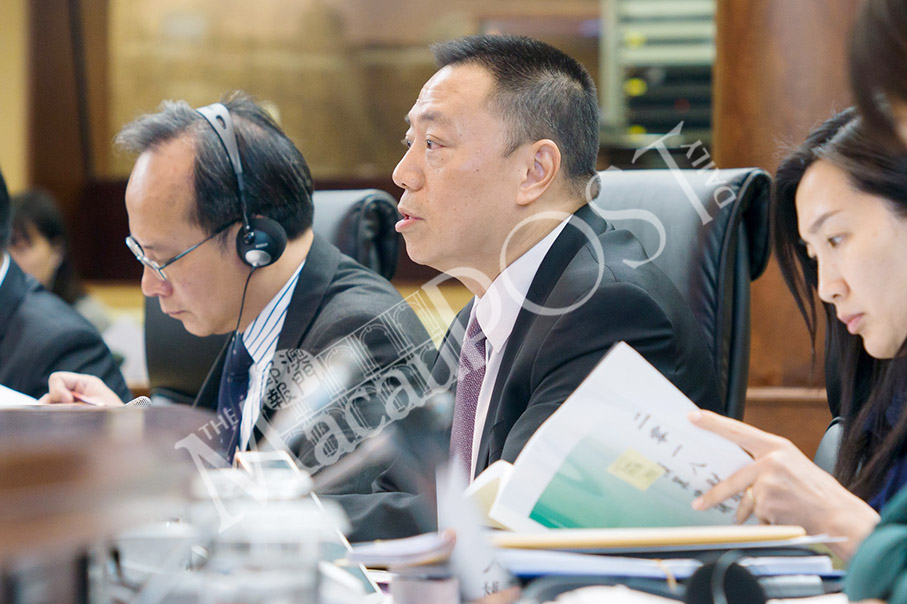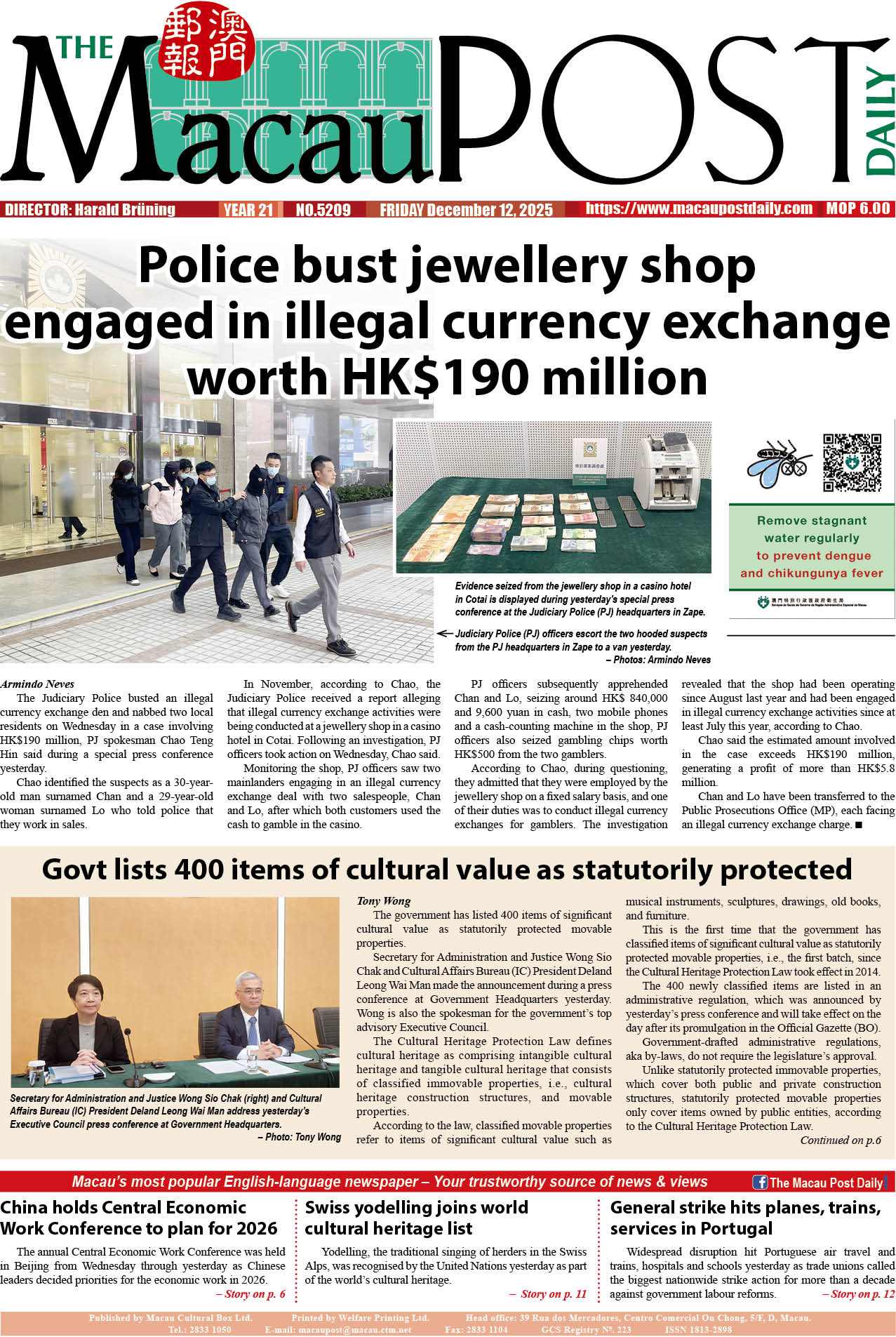Secretary for Economy and Finance Lionel Leong Vai Tac said yesterday that the government expects its total expenditure to be more than 100 billion patacas next year, a 14.5 percent increase from this year’s budget.
It would be the first time for the government to spend over 100 billion patacas in a year.
Leong made the remarks when attending a plenary session to present the government’s 2018 budget bill.
According to the bill, the government expects total receipts of 119.17 billion patacas next year, 16.23 billion patacas more than this year’s budget, up 15.8 percent.
Government expenditure next year is budgeted at 109.61 billion patacas, 13.89 billion patacas more than this year’s budget, up 14.5 percent, according to the bill.
Addressing the legislature’s hemicycle, Leong also said he expected the government’s revenue from direct gaming taxes to amount to 80.5 billion patacas next year, 10.5 billion patacas more than budgeted for this year, up 15 percent.
According to the Finance Services Bureau (DSF), the government’s income from direct gaming taxes amounted to 76.2 billion patacas in the first 10 months of the year, a yearon- year growth of 17.4 percent.
Leong said that the rise in budgeted expenditure for next year was mainly due to an increase in the government’s public investment plan (PIDDA).
According to Leong, next year’s PIDDA is budgeted at 21.15 billion patacas, 5.89 billion patacas more than for this year, up 38.6 percent.
The bill proposes to raise public servants’ salaries from 83 patacas to 85 patacas per salary point, an increase of 2.41 percent, effective from January next year, Leong said.
Public servants’ salaries were raised by 2.47 percent in January this year, from 81 to 83 patacas per salary point.
According to Leong, the government’s expenditure on its personnel next year is budgeted at 22.2 billion patacas.
Several lawmakers asked Leong about an increase of some 1.4 billion patacas in the government’s budgeted personnel expenditure for next year, compared to this year’s expected figure.
The government said last year that its expenditure on its personnel for this year was budgeted at 20.83 billion patacas.
Leong replied yesterday that the rise in its budgeted personnel expenditure was due to a raft of reasons, including the proposed rise in public servants’ salaries and an expected increase in the number of public servants.
The number of public servants stood at 31,200 at the end of June, according to the Public Administration and Civil Service Bureau (SAFP). Public servants are among the city’s top earners. Besides, government personnel enjoy generous fringe benefits.
Leong also said the government would submit a bill to the legislature next year on the setting-up of the government’s investment and development fund. The bill will state that the operation of the fund will be in line with the Santiago Principles, according to Leong.
According to Wikipedia, the Santiago Principles, or formally the Sovereign Wealth Funds: Generally Accepted Principles and Practices (GAPP), are designed as a common global set of 24 voluntary guidelines that assign best practices for the operations of Sovereign Wealth Funds (SWFs).
Leong also said that the government recorded investment gains of 15.5 billion patacas during the first nine months of this year from investing its financial reserves – an annualised rate of return of 4.5 percent.
The Macau Monetary Authority (AMCM) said in a statement earlier this year that the government recorded investment gains of 3.31 billion patacas last year from investing its financial reserves – an annual return of 0.8 percent – as compared to the 0.7 percent recorded in 2015.
Leong also said that the government aimed for the ratio of its financial reserves to be invested by investment fund managers to 20 percent by the end of this year, with the aim of improving its investment performance.
According to the 2018 Policy Address delivered by Chief Executive Fernando Chui Sai On earlier this month, the government’s total reserves amount to about 505 billion patacas – or more than half a trillion patacas.
The outline of the bill was passed by yesterday’s plenary session. The bill will be reviewed in detail by one of the legislature’s three standing committees, after which an article-by-article vote will be held in another plenary session next month.

Accompanied by officials under his portfolio, Secretary for Economy and Finance Lionel Leong Vai Tac (centre) presents the government’s 2018 budget bill during yesterday’s plenary session in the legislature’s hemicycle. Photo: GCS








